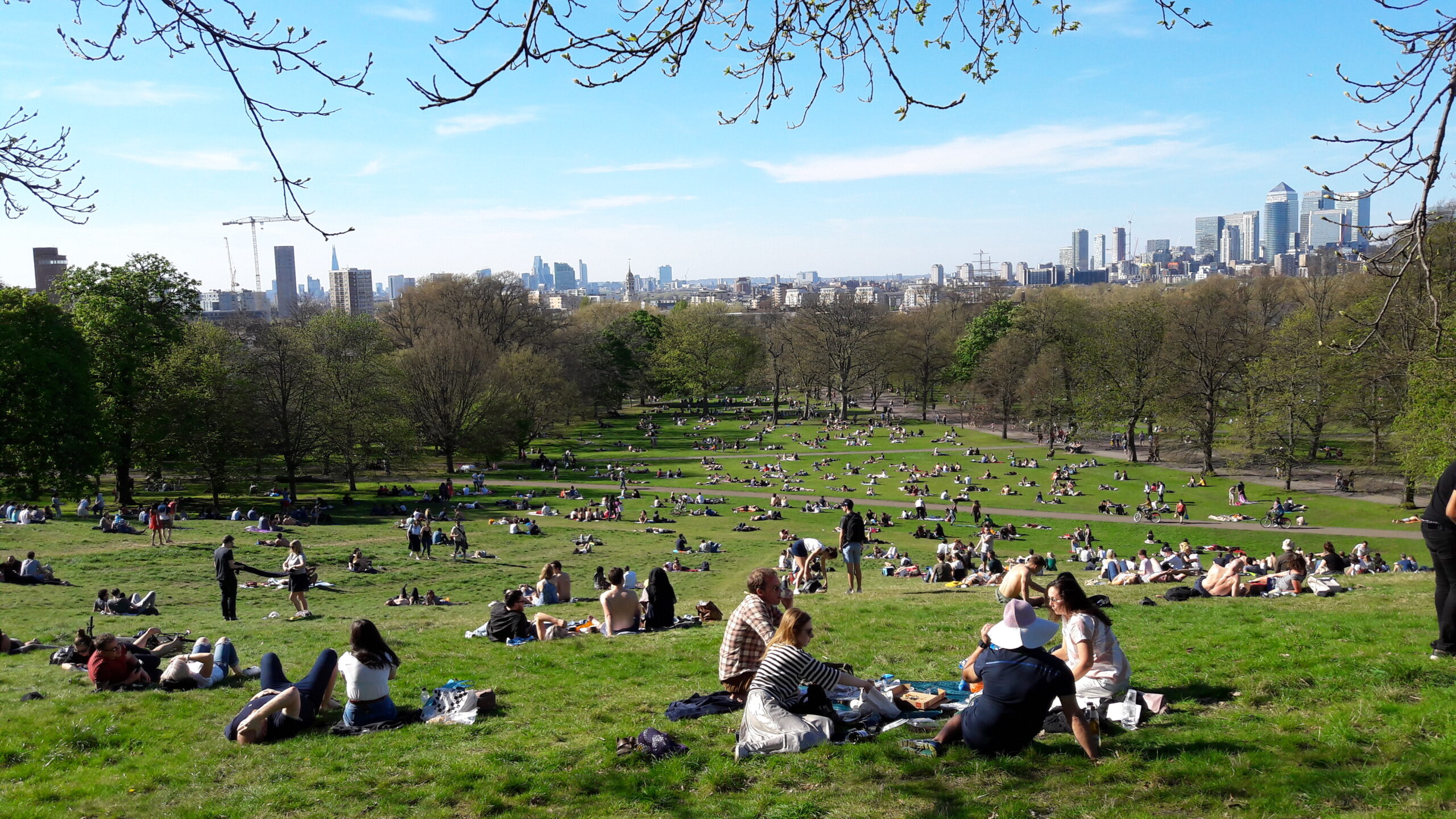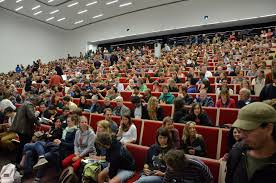Deschooling as a Path to Social-Ecological Transformation
By Fabian Scheidler and Andrea Vetter
"Deschooling is at the root of any movement for human liberation", wrote Ivan Illich, today almost forgotten but once a world-renowned critical thinker, in 1971. With books like "Deschooling Society" and "Energy and Equity” he inspired in the 1970s both the emerging environmental movement and the renewed interest in progressive education. But where are the connections between growth critique and critique of school education? And how could a world beyond alienated learning and growth pressure actually look like?
Growth, we keep hearing from politicians and business leaders, is indispensable in order to guarantee prosperity, peace and liberty. However, fewer and fewer people believe these incantations, as it has become too obvious that growth does not benefit all, but only a small class of the rich and super-rich. In many countries the damages caused by growth already outweigh its benefits: environmental destruction, stress, noise, loneliness and social divide. In the global competition for increasing the Gross Domestic Product (GDP), much of what makes life worthwhile is destroyed. On top of this, economic growth is ruining the ability of global ecosystems to regenerate – thereby threatening the long-term survival of humanity. In the face of these destructive consequences of growth, an intensive quest for alternatives to growth started in the 1970s, a debate which has been revived over the last years with the term “degrowth”.
Degrowth in this sense is not a static concept for an alternative system but rather an umbrella for a bunch of uncountable initiatives run by people who want to bring change to our day-to-day life: politically active people who oppose the continuous destruction of our environment and our societies as well as scientists who ponder how particular sectors of the economy or the infrastructure, e.g. transport or public health, could be designed in an ecologically and socially compatible way. These ideas have in common that they rely on the potential of alternative forms of social organization rather than on merely technical solutions. Nonetheless, the issue of learning and schooling is hardly ever discussed in this context, although it is deeply connected to the topic of growth.
The current school system has developed in co-evolution with our growth-based society. With the expansion of a capitalist global economy since the 18th century, people had to be conditioned in order to fit into the new economic machine and the global division of labour. Given that the overall objective of this economic system is not the fulfilment of needs or the promotion of individual flourishing but the endless accumulation of capital, a school system that feeds this machine can neither be centred on children's learning needs, nor on the development of their personalities.
One of the most common accusations against the current school system is that children do not learn enough. Indeed, it is a well-known fact that curiosity is the best motivation for learning, rather than fear or the duty to fulfil imposed tasks without grasping their deeper sense. Despite this critique, however, the basic pillars of our school system – top-down imposed curricula, segmentation of issues into subjects and lessons, the assignment of marks – have not changed for centuries. Why? Are politicians, school directors and educators too stubborn to implement the most elementary findings of the psychology of learning? Or are there systemic constraints that prevent them from doing so? Is it possible that the main objective of learning at school is not about understanding math or geography but about something entirely different?
When we stop considering schools as dysfunctional systems and start asking what they actually deliver, we obtain some interesting answers:
At school pupils practice a certain mode that is indispensable for their future functioning in the economic machine: the mode of alienation. They are trained to fulfil replaceable tasks in order to collect credits in an abstract system of punishment and reward instead of following their own interests or developing skills that directly contribute to meeting human needs. During the higher classes almost all pupils have understood that school is not about the content of learning, but about progressing in this credit-point system – and this is exactly the educational objective. Practicing the mode of alienation is the precondition for people to accept their place in an alienated economy later on – be it at the cashier at a supermarket or on a higher level of the social pyramid.
Only when people unlearn to follow their own impulses and take for granted that "working" means conducting tasks that are made up by others; only when they align their lives to the credits given to or taken from them, they can function smoothly in a global economy that splits up all work processes according to the requirements of efficiency and output maximization. The growth economy needs alienated human beings. It replaces interest and sensual experience with salary, an abstract monetary value that is meant to compensate for meaningless or gruelling work – just as the school system puts marks in the place of a fulfilling learning experience.
For these reasons, transforming the learning environment and overcoming a growth-based economy go hand in hand. The liberation from alienated tasks at work and the creation of learning environments that enable people to freely develop their personalities are two sides of the same coin.
But what could such a transformation of the economic and learning environments look like? From the perspective of the current degrowth debates, work is envisaged to become much more diversified: wage-labour in profit-oriented enterprises will lose its dominance, while production and consumption cooperatives, solidarity-based enterprises (like community-supported agriculture), subsistence work in the house, the workshop and the garden, production in community workshops and with open-source knowledge become more important. This will require a lot of technical, manual and practical skills by large numbers of people and a completely different type of lifelong learning beyond pre-manufactured consumption.
In such a society people will not spend 40 or 60 hours per week at a high-tech, aseptic workplace where children can neither be present nor learn. Many degrowth proposals assume that wage-labour time will be radically reduced to maybe 20 hours per week. This means that people will be less specialized and have time to continuously acquire new skills. In local community gardens, open workshops and neighbourhood-centres all generations will intermingle so that children can go back to natural learning just by being there and helping whenever they feel like it.
Above all, such a society will need an attitude that directly picks up what Ivan Illich calls "deschooling": Trust in the skills of my neighbour rather than demanding "experts" for everything; trust in my own skills and the courage to simply try out things. Will there still be a place for institutional schools at all? This could be locally decided based on the respective needs. Illich proposes “learning networks”, where children and adults from different families get together and learn from each other. Thus learning is understood as a voluntary collective action that forces nobody but enables many. However, the question remains, whether some kind of institutional control is needed to make sure that children are not deprived from their right to learn.
By means of such reduced wage-labour time it will also be possible to share responsibilities for small children in a totally different manner. This opens up opportunities for men and non-parents to contribute to the transformation of gender-related work division and nuclear family models. There already are experimental models for collective neighbourhood-childcare such as the "Rockzipfel" in Leipzig, a co-working space for parents with small children, where international volunteers look temporarily after the children in return for boarding and lodging in the house.
In his works, particularly in "Deschooling Society", Ivan Illich has outlined one of many possible options what learning could practically look like in a degrowth society. His ideas raise interesting questions and are worthy of discussion far beyond the usual debates on curriculum reform.
Illich proposes to break up the school monopoly by laws prohibiting the discrimination of people who never attended school – so that it would be impossible to restrict specific job offers to people with a certain degree. For him, qualifying tests are worth considering though, but not exclusions on the basis of omitted tuition according to certain curricula. This approach would open up opportunities for many individual forms of learning.
According to Illich, learning works best if a skill or a thought is aspired based on intrinsic motivation rather than a curriculum. "Most learning is not the result of instruction. It is rather the result of unhampered participation in a meaningful setting. Most people learn best by being 'with it'". In principle he identifies two types of learning: first the adoption of "skills", e.g. craftsmanship, a musical instrument or a language, where the level of mastery is measurable; second "liberal education" aiming at personal growth and developing creativity which is not measurable and can only flourish in mutual exchange.
While "skills" are more or less easy to learn through imitation of a master in his or her field (a musician, a native speaker etc.), "liberal education" mainly emerges through the exchange of like-minded people who come together to deal with a certain problem.
Illich turns against the artificial shortage of education opportunities which could be available in abundance – shortage because only educational "experts" are allowed to teach and only institutional schools are supposed to be learning places. "Both the exchange of skills and matching of partners are based on the assumption that education for all means education by all." Moreover, Illich does not want to restrict learning to the period of childhood but understands it as a life-long process.
Illich describes a "learning web" for "skill exchanges" and "peer-matching" similar to a barter club that could bring people together to pass on certain skills or hold meetings to discuss for example a certain book or film. At the core of this type of learning are "learning centres" that could be located in every neighbourhood – similar to open workshops – and are a mixture of café, library and material store.
But what could the transition to such a degrowth society look like? As Illich put it: "Many self-styled revolutionaries are victims of school. They see even 'liberation' as the product of an institutional process. [...] Each of us is personally responsible for his or her own deschooling, and only we have the power to do it. [...] People could not free themselves from the Crown until at least some of them had freed themselves from the established Church. They cannot free themselves from progressive consumption until they free themselves from obligatory school." Whether it will be different types of learning that first generate new economic models or new economic models that enable new forms of learning is not important – best to try both at the same time. --------------------------------------- Translation: Christiane Kliemann

Degrowth is a movement that explores another direction for society, one where ecological and social justice become possible, along with more meaningful lives. While there is no single definition for degrowth, this entry attempts to offer some guidance for understanding degrowth in all its diversity. First, degrowth is a variety of challenges to the current status quo. Secondly, degrowth ...

In 2008, a few years after the birth of "décroissance" in France, we organized the first International Degrowth Conference for Ecological Sustainability and Social Equity in Paris. Only ten years later, in 2018, we promoted three large international events in the same year: the 6th International Degrowth Conference in Malmö - following Barcelona, Venice, Leipzig and Budapest – as well as a macr...

By Christiane Kliemann Right before the recent UN climate change summit and shortly after the Leipzig Degrowth-Conference, international media, governments and the United Nations enthusiastically welcomed a new report entitled “Better Growth, Better Climate” and trumpeted its central message around the globe: that economic growth and tackling climate change can go hand in hand. While the repo...